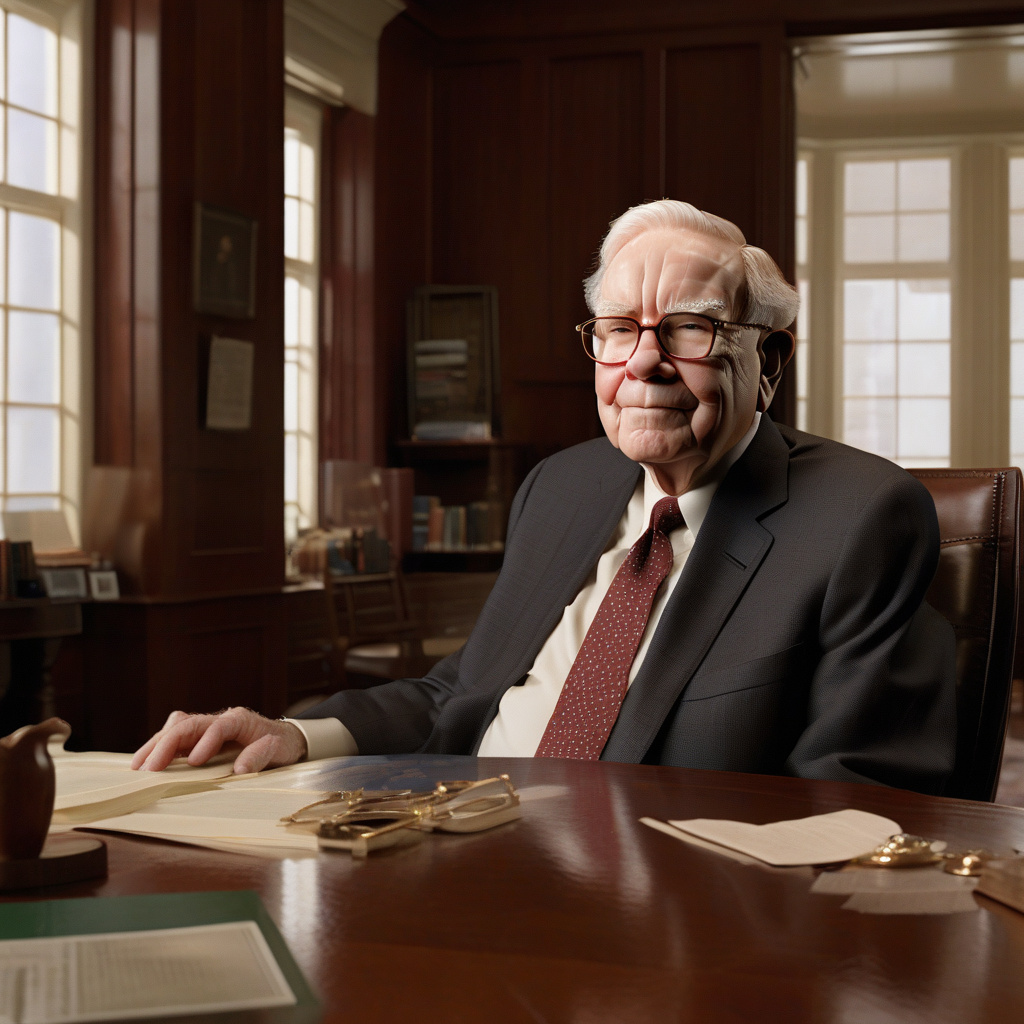Warren Buffett, the iconic figure in the world of finance and investing, has made a significant announcement that is set to reshape the landscape of Berkshire Hathaway. In a move that has sent shockwaves through the industry, Buffett revealed his plan to step down as CEO of the conglomerate, paving the way for Greg Abel to assume the role by the end of 2025. This decision marks a pivotal moment not only for Berkshire Hathaway but also for the broader financial community that has long looked to Buffett for guidance and wisdom.
Buffett’s endorsement of Abel as his successor comes as no surprise to those who have closely followed the evolution of Berkshire Hathaway. Abel, currently serving as the company’s Vice Chairman of Non-Insurance Operations, has been a key figure within the organization for years, demonstrating a deep understanding of its operations and values. With Buffett expressing full confidence in Abel’s ability to lead the company into the future, the stage is set for a seamless transition that aims to uphold the principles and success that Berkshire Hathaway has been known for under Buffett’s stewardship.
As the mastermind behind Berkshire Hathaway for decades, Warren Buffett’s leadership style and investment strategies have become legendary in the world of finance. His ability to identify undervalued assets, make shrewd investment decisions, and cultivate a culture of long-term thinking has set him apart as one of the most successful investors of our time. Buffett’s annual letters to shareholders have been widely studied and revered for their insights into the principles that have guided his investment philosophy, making him a revered figure not only among investors but also among business leaders worldwide.
The announcement of Buffett’s planned succession brings to the forefront the importance of effective leadership transitions in ensuring the continuity and success of organizations, particularly those with a strong legacy and reputation to uphold. While Buffett’s shoes may seem daunting to fill, Abel’s tenure within Berkshire Hathaway and his proven track record within the company position him as a fitting successor who is poised to carry forward the values and vision that have defined Berkshire Hathaway under Buffett’s guidance.
In the world of business and finance, leadership transitions are inevitable, yet the manner in which they are executed can significantly impact the trajectory of an organization. By announcing his succession plan well in advance, Buffett has demonstrated a strategic approach to leadership succession that allows for a smooth handover of responsibilities and provides stakeholders with clarity and assurance about the future direction of Berkshire Hathaway. This proactive approach to succession planning not only mitigates uncertainty but also instills confidence in the organization’s ability to adapt to change and thrive in the face of new leadership.
As we look ahead to the end of 2025 when Greg Abel is set to assume the role of CEO at Berkshire Hathaway, the spotlight will undoubtedly be on the transition process and how Abel will steer the company into its next chapter. While Buffett’s presence will undoubtedly be missed, his legacy and influence will continue to reverberate within the walls of Berkshire Hathaway for years to come. The succession of leadership at Berkshire Hathaway serves as a reminder of the importance of visionary leadership, strategic planning, and a commitment to upholding the core values that define an organization’s identity and success.

